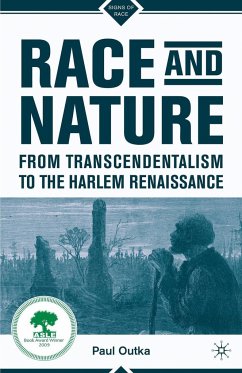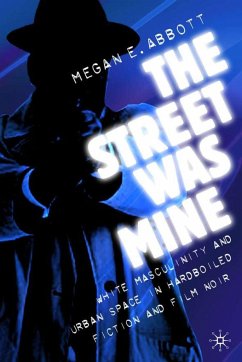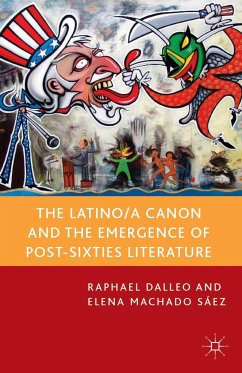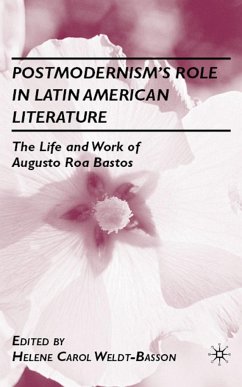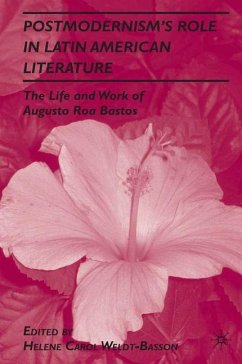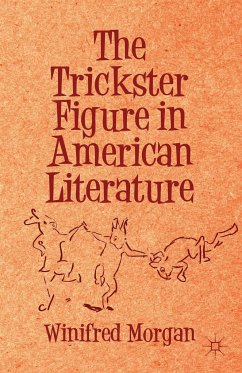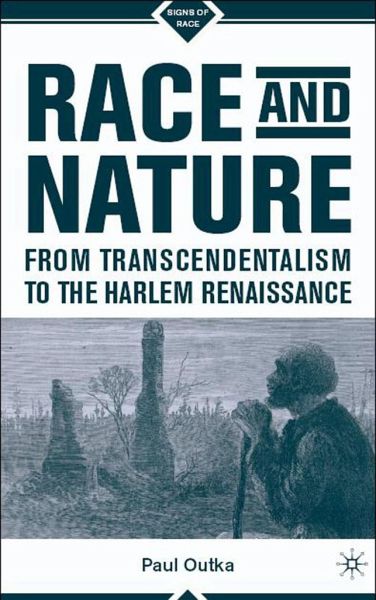
P. Outka
Gebundenes Buch
Race and Nature from Transcendentalism to the Harlem Renaissance
Versandkostenfrei!
Versandfertig in 6-10 Tagen
Weitere Ausgaben:

PAYBACK Punkte
38 °P sammeln!





Drawing on theories of sublimity, trauma, and ecocriticism, this book examines how the often sharp division between European American and African American experiences of the natural world developed in American culture and history, and how those natural experiences, in turn, shaped the construction of race.
PAUL OUTKA is Assistant Professor of English, Florida State University. He has published essays on nineteenth- and twentieth-century U.S. literature and culture with a particular focus on poetry, race, and the natural environment.
Produktdetails
- Signs of Race
- Verlag: Palgrave Macmillan / Palgrave Macmillan US / Springer Palgrave Macmillan
- Artikelnr. des Verlages: 978-0-230-60296-0
- 2008 edition
- Seitenzahl: 266
- Erscheinungstermin: 29. September 2008
- Englisch
- Abmessung: 211mm x 140mm x 20mm
- Gewicht: 440g
- ISBN-13: 9780230602960
- ISBN-10: 0230602967
- Artikelnr.: 23181650
Herstellerkennzeichnung
Libri GmbH
Europaallee 1
36244 Bad Hersfeld
gpsr@libri.de
"Exciting, often brilliant readings...Outka has made a major contribution to the fields of ecocriticism and race studies, revealing much of their mutual interest." - Interdisciplinary Studies in Literature and Environment
"At each stopping point, the book sparkles with fascinating insights...powerfully provocative." - Journal of American Ethnic History
"Outka's book sets a new precedent for important work to be done in articulating ecocriticism with African-American literature and other related fields." - Journal of Ecocriticism
"The most theoretically ambitious and historically inclusive coordinated assessment to date of the traditional ecocritical canon in relation to African-American writing." - Lawrence Buell,
"At each stopping point, the book sparkles with fascinating insights...powerfully provocative." - Journal of American Ethnic History
"Outka's book sets a new precedent for important work to be done in articulating ecocriticism with African-American literature and other related fields." - Journal of Ecocriticism
"The most theoretically ambitious and historically inclusive coordinated assessment to date of the traditional ecocritical canon in relation to African-American writing." - Lawrence Buell,
Mehr anzeigen
Powell M. Cabot Professor of American Literature, Harvard University, USA and author of The Environmental Imagination and Writing for an Endangered World
"This book has the potential to change ecocritical scholarship, and perhaps even American environmental thinking, for the better. It promises to wake us up to the ways race and nature are deeply entangled in American history and ideology. When we can see the majestic mountain, says Outka, as well as the 'strange fruit' hanging from the tree when we can see that white relationship to nature has its roots in the Romantic sublime, while African American relationship to nature has it roots in the traumatic racism of slavery and its aftermath, then we can begin, as scholars andenvironmentalists, to embrace the true complexity of the American landscape." - Gretchen Legler, Professor, Department of Humanities, BFA Program in Creative Writing, University of Maine at Farmington, USA
"A very important book. It will significantly advance the discussion of environmental justice. I strongly recommend it." - James H. Cone, Charles Augustus Briggs Distinguished Professor of Systematic Theology, Union Theological Seminary, USA
"This book has the potential to change ecocritical scholarship, and perhaps even American environmental thinking, for the better. It promises to wake us up to the ways race and nature are deeply entangled in American history and ideology. When we can see the majestic mountain, says Outka, as well as the 'strange fruit' hanging from the tree when we can see that white relationship to nature has its roots in the Romantic sublime, while African American relationship to nature has it roots in the traumatic racism of slavery and its aftermath, then we can begin, as scholars andenvironmentalists, to embrace the true complexity of the American landscape." - Gretchen Legler, Professor, Department of Humanities, BFA Program in Creative Writing, University of Maine at Farmington, USA
"A very important book. It will significantly advance the discussion of environmental justice. I strongly recommend it." - James H. Cone, Charles Augustus Briggs Distinguished Professor of Systematic Theology, Union Theological Seminary, USA
Schließen
Für dieses Produkt wurde noch keine Bewertung abgegeben. Wir würden uns sehr freuen, wenn du die erste Bewertung schreibst!
Eine Bewertung schreiben
Eine Bewertung schreiben
Andere Kunden interessierten sich für


